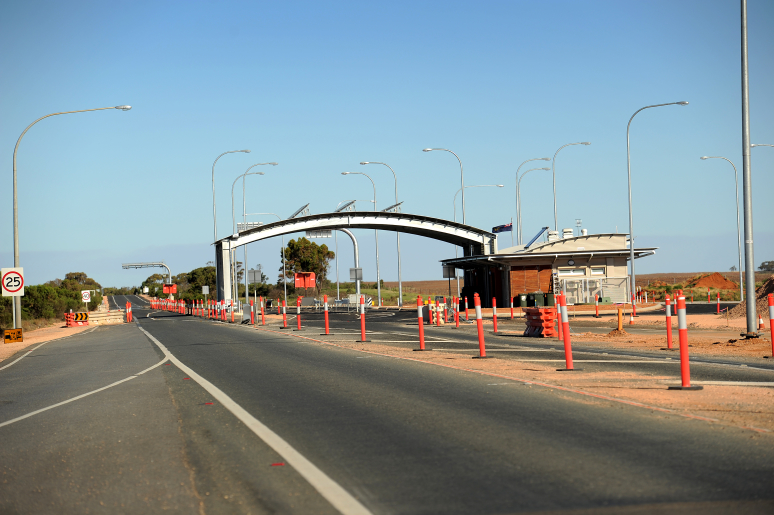Borders still closed to general human traffic: Govt
Zimbabwe has only opened international airports to passenger traffic while land borders remain closed to human traffic for the time being.
Only commercial traffic, diplomats and returning residents are allowed passage across the land borders, Home Affairs and Cultural Heritage Minister Kazembe Kazembe confirmed yesterday, with the public health regulations put in place at the start of the Covid-19 pandemic still in place.
With most sectors including schools and the wider economy being opened up, Government is expected to give direction on the reopening of land borders at some stage once all necessary measures are in place.
“We haven’t opened the border at Beitbridge as yet. The border is open to commercial cargo, diplomats and returning residents. In fact, the regulations as stipulated by the current lockdown precautions still stand. However, the issue will be discussed in due course,” said Minister Kazembe.
Environment, Climate Change, Tourism and Hospitality Industry Minister Mangaliso Ndlovu also said only airports were open for tourist arrivals.
“As far as we are concerned we have only opened airports for tourists and the rest of the borders remain open only to commercial not general human traffic,” he said.
A total of 9 331 Zimbabweans have between March and September returned by road via Beitbridge Border Post and were tested and quarantined in provincial centres countrywide.
Before the start of the lockdown in March, half a million people a year crossed the Limpopo at Beitbridge. Lately there has been a lot of hype among people in Sadc countries on the re-opening of Beitbridge Border Post, after South African President Cyril Ramaphosa announced recently that South Africa would reopen some borders today for business and tourism travel, but under stringent conditions and health checks.
Chirundu and Kariba border post authorities have been looking at their systems so these posts can be opened fairly quickly once the go-ahead is given forpassenger traffic through land border posts.
Regional immigration officer Mr Joshua Chibundu said they are waiting for instructions from their head office for any developments to take place.
“We are operating as we have always been. If there are any changes regarding opening of the borders, they will have to come from our head office and as of now there has not been any communication,” he said.
Authorities from Zambia and Zimbabwe met recently to evaluate the impact of Covid-19 and come up with recommendations on systems to be put in place on both sides of the border before the borders can be opened for passenger traffic.
The cross border coordination and training workshop was facilitated by the International Organisation for Migration at the Chirundu One Stop Border Post.
It looked at the challenges faced owing to the Covid-19 pandemic and sought to find ways of strengthening cross-border coordination of stakeholders such as immigration, customs, local government, social welfare and the health ministries.
Even when land border posts are reopened to human traffic, border crossings will be more complicated and far more expensive. South Africa’s National Borders Management Coordinating Committee chairperson Elvis Manyaka said in a circular to all port of entry managers that travellers entering South Africa will need to present a negative Covid-19 test results not older than 72 hours from time of departure.
“Where a traveller has not done a Covid-19 test prior to departure,they will be required to remain in mandatory quarantine at their own cost for a period of 10 days. All travellers will be subjected to screening by Port Health Officials upon arrival and departure and those detected with symptoms will be required to remain in quarantine until a repeat Covid-19 test is conducted at their own cost,” he said.
Travellers would need to complete a Traveller Health Questionnaire prior to arrival or upon arrival at any port of entry.
Zimbabwe has already put in place similar testing requirements for those using airports.
Before each land border post is reopened to passenger traffic, identical measures will have to be agreed with the authorities on both sides, along with lists of approved testing facilities. International travellers will normally require two tests, one before they go and one before they return and such tests are expensive at the approved private facilities that will have to be used by travellers.
At the same time the adjoining border post authorities will need to agree on measures to protect staff on both sides and on how the increasingly common one-stop facilities will operate.-herald.cl.zw











